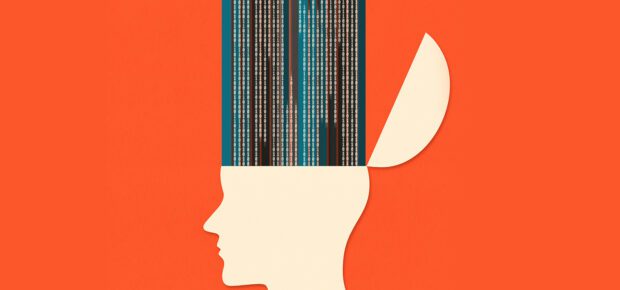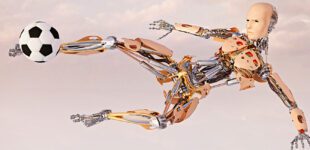April 24, 2025
The ability of large language models to quickly answer questions or explain complex concepts via a smartphone app, for example, has led some to refer to them as “a tutor in your pocket.”
That capability is running into another phenomenon: the widespread availability of inexpensive AI around the world. Together, these two technologies could transform global education, offering tailored learning experiences to students in remote and underserved regions and providing unprecedented access to quality educational resources.
“Education in underserved and remote regions has long been plagued by resource scarcity, whether it’s a shortage of qualified teachers, limited access to high-quality learning materials or a lack of personalized instruction,” said IEEE Member Saptarshi Ghosh. “While the internet has opened doors, it still falls short in addressing the unique needs of individual students. AI changes that.”
AI’s Potential to Fill a Persistent Gap
AI-powered learning systems are already available. Language apps that have incorporated generative AI can now offer interactive conversational practice that mimics real life.
Extending that capability to under-resourced schools, however, is still in its infancy. Pilot projects to address this challenge have shown promise.
One project detailed in IEEE Transactions on Education showed that an AI-powered tutor had an accuracy rate of about 88%. Another experiment found that students were often able to spot the mistakes large language models made when tutoring math. However, the researchers observed that students who already knew how to solve the problems correctly were much better at identifying those errors. This led them to urge caution about relying too heavily on generative AI as a teaching tool.
More Than the Transfer of Facts
The idea that generative AI and large language models could serve as a “tutor-in-your-pocket” does have some weaknesses. A big one: education is more than the transfer of facts. A student that masters a new mathematics technique by using generative AI doesn’t really learn how to apply it in the real world.
“Education consists of three key dimensions: value shaping, ability training and knowledge transfer,” said IEEE Graduate Student Member Siyuan Sun. “While AI can significantly improve fairness in knowledge delivery, it is insufficient in fostering values and abilities, which are more crucial for holistic education.”
Before the COVID-19 pandemic, many experts hoped widespread internet connectivity and the availability of online learning would help students stay on track. In many parts of the world, though, the absence of in-person learning has been blamed for declining test scores. One question is whether a reliance on artificial intelligence would replicate that scenario.
“That’s the great challenge. If we compare this to generative artificial intelligence in education, there are some parallels, but also key differences,” said IEEE Member Gabriel Gomes de Oliveira. “The similarities include over-reliance on technology and declining critical thinking skills; the differences lie in artificial intelligence being a supplement, not a replacement, and the personalization of learning alongside teacher integration.”
Go In-Depth: Teaching the ethical use of AI must go beyond technical instruction to include insights from fields like philosophy, law, social sciences and education, a new report from the IEEE Standards Association argues.





 Meaningful Momentum or Running in Place?
Meaningful Momentum or Running in Place? AI Through Our Ages
AI Through Our Ages Liquid Infrastructure: Our Planet's Most Precious Resource
Liquid Infrastructure: Our Planet's Most Precious Resource The Impact of Technology in 2025
The Impact of Technology in 2025 Quantum and AI: Safeguards or Threats to Cybersecurity?
Quantum and AI: Safeguards or Threats to Cybersecurity? Why AI Can't Live Without Us
Why AI Can't Live Without Us Bits, Bytes, Buildings and Bridges: Digital-Driven Infrastructure
Bits, Bytes, Buildings and Bridges: Digital-Driven Infrastructure Impact of Technology in 2024
Impact of Technology in 2024 Emerging AI Cybersecurity Challenges and Solutions
Emerging AI Cybersecurity Challenges and Solutions The Skies are Unlimited
The Skies are Unlimited Smart Cities 2030: How Tech is Reshaping Urbanscapes
Smart Cities 2030: How Tech is Reshaping Urbanscapes Impact of Technology 2023
Impact of Technology 2023 Cybersecurity for Life-Changing Innovations
Cybersecurity for Life-Changing Innovations Smarter Wearables Healthier Life
Smarter Wearables Healthier Life Infrastructure In Motion
Infrastructure In Motion The Impact of Tech in 2022 and Beyond
The Impact of Tech in 2022 and Beyond Cybersecurity, Technology and Protecting Our World
Cybersecurity, Technology and Protecting Our World How Technology Helps us Understand Our Health and Wellness
How Technology Helps us Understand Our Health and Wellness The Resilience of Humanity
The Resilience of Humanity Harnessing and Sustaining our Natural Resources
Harnessing and Sustaining our Natural Resources Creating Healthy Spaces Through Technology
Creating Healthy Spaces Through Technology Exceptional Infrastructure Challenges, Technology and Humanity
Exceptional Infrastructure Challenges, Technology and Humanity The Global Impact of IEEE's 802 Standards
The Global Impact of IEEE's 802 Standards Scenes of our Cyber Lives: The Security Threats and Technology Solutions Protecting Us
Scenes of our Cyber Lives: The Security Threats and Technology Solutions Protecting Us How Millennial Parents are Embracing Health and Wellness Technologies for Their Generation Alpha Kids
How Millennial Parents are Embracing Health and Wellness Technologies for Their Generation Alpha Kids Space Exploration, Technology and Our Lives
Space Exploration, Technology and Our Lives Global Innovation and the Environment
Global Innovation and the Environment How Technology, Privacy and Security are Changing Each Other (And Us)
How Technology, Privacy and Security are Changing Each Other (And Us) Find us in booth 31506, LVCC South Hall 3 and experience the Technology Moon Walk
Find us in booth 31506, LVCC South Hall 3 and experience the Technology Moon Walk Virtual and Mixed Reality
Virtual and Mixed Reality How Robots are Improving our Health
How Robots are Improving our Health IEEE Experts and the Robots They are Teaching
IEEE Experts and the Robots They are Teaching See how millennial parents around the world see AI impacting the lives of their tech-infused offspring
See how millennial parents around the world see AI impacting the lives of their tech-infused offspring Take the journey from farm to table and learn how IoT will help us reach the rising demand for food production
Take the journey from farm to table and learn how IoT will help us reach the rising demand for food production Watch technical experts discuss the latest cyber threats
Watch technical experts discuss the latest cyber threats Explore how researchers, teachers, explorers, healthcare and medical professionals use immersive technologies
Explore how researchers, teachers, explorers, healthcare and medical professionals use immersive technologies Follow the timeline to see how Generation AI will be impacted by technology
Follow the timeline to see how Generation AI will be impacted by technology Learn how your IoT data can be used by experiencing a day in a connected life
Learn how your IoT data can be used by experiencing a day in a connected life Listen to technical experts discuss the biggest security threats today
Listen to technical experts discuss the biggest security threats today See how tech has influenced and evolved with the Games
See how tech has influenced and evolved with the Games Enter our virtual home to explore the IoT (Internet of Things) technologies
Enter our virtual home to explore the IoT (Internet of Things) technologies Explore an interactive map showcasing exciting innovations in robotics
Explore an interactive map showcasing exciting innovations in robotics Interactively explore A.I. in recent Hollywood movies
Interactively explore A.I. in recent Hollywood movies Get immersed in technologies that will improve patients' lives
Get immersed in technologies that will improve patients' lives